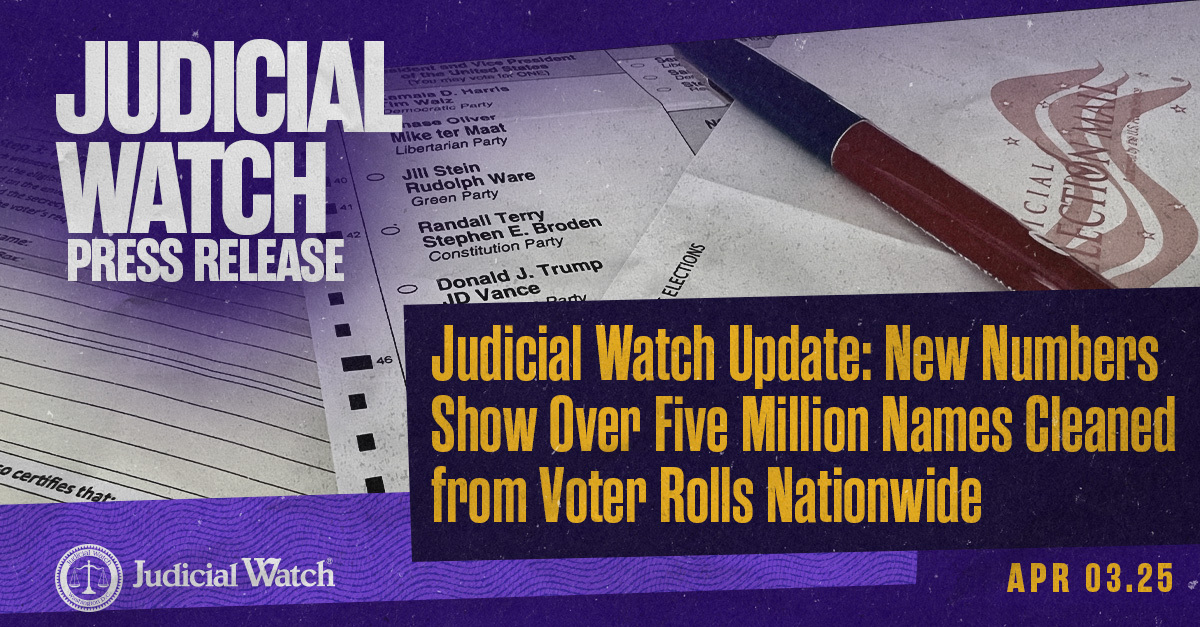
DOJ Can Shield How it Singled Out Gay Staffers to Showcase at LGBT Law Conf.
A federal court has ruled that the Department of Justice (DOJ) can keep secret a controversial process in which agency officials tried to identify gay employees so they could appear as props at a Gay and Lesbian legal conference featuring Attorney General Eric Holder as the keynote speaker.
The plan took place as Holder prepared for his delivery at the annual National Lesbian Gay Bisexual Transgender (LGBT) Bar Association event known as the Lavender Law Conference. The DOJ wanted to make a strong showing and officials tried to recruit gay employees to help draft the Attorney General’s speech and appear on stage with him at the 2012 event, which was held in Washington D.C.
Judicial Watch sued the DOJ for records involving how the agency charged with enforcing the law determined who within its ranks is gay. The public has the right to know about government officials’ attempts to apply stereotypes and speculate on their colleagues’ sexual orientation, JW asserts in its complaint. This is especially ironic at the DOJ considering the agency has a bloated civil rights division that’s been extremely active in punishing discrimination involving sexual orientation.
“They were trying to identify people who could walk in front of the conference so they could show how open and inclusive they are,” said Jim Peterson, the Judicial Watch attorney handling the case. “They wanted to bring these people up and put them on stage.” On a more serious note, Peterson says, the public officials at the agency charged with enforcing the law could themselves be violating the law.
Perhaps that’s why the DOJ fought hard to withhold information about the process, mainly by citing privacy issues, and a few days ago a federal judge handed the agency a victory. JW has received more than 100 pages of documents with redactions, but 66 documents—the most important ones—were completely withheld. The DOJ cited a public-records law exemption that prevents the release of personnel and medical files when it “would constitute a clearly unwarranted invasion of personal privacy.” Under this protection, the agency withheld emails “discussing the drafting of the Attorney General’s speech which discuss/infer the sexual orientation of certain department employees.”
JW argued that the privacy invasion exemption doesn’t apply because we never asked for employee names or titles. But the DOJ countered that a very small number of individuals are referenced so their identity could easily be determined based on the context of the emails. A federal judge in D.C. agreed, ruling that JW cannot access papers that would out DOJ employees. The judge, Clinton-appointed Ellen Huvelle, also wrote in her decision that the public interests in this case are “relatively inconsequential” compared with employee privacy.
During his Lavender Law Conference speech Holder boasted that the DOJ had “multiple representatives” in attendance, including a number of senior department leaders and five United States Attorneys who are “strong LGBT allies.” He named them from the stage; Melinda Haag, from the Northern District of California; David Hickton, from the Western District of Pennsylvania; Amanda Marshall, from the District of Oregon; Stephen Wigginton, from the Southern District of Illinois; and Robert Pitman, from the Western District of Texas. He added that President Obama has advocated passionately on behalf of the LGBT community and assured that the federal government’s inclusive policies make it an employer that accepts and respects every potential employee.
















